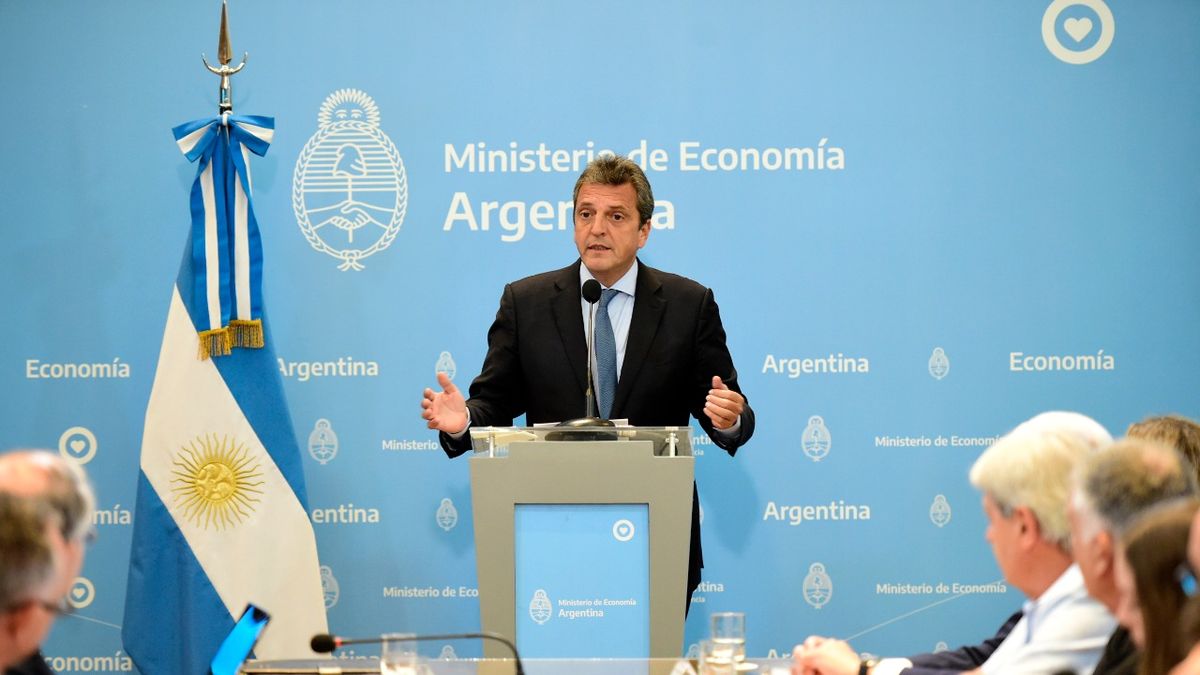In addition, he reported that the auto parts and automobile production sector generated “almost 50,000 more jobs than in 2021“, a number that he hopes “will continue to grow in 2023”while an increase of almost 15% in production is expected for next year.
WhatsApp Video 2023-01-05 at 21.18.09 (2).mp4
“We envision for 2023 a minimum production scenario of 620,000 vehicles,” said Massa, compared to the 536,000 cars in 2022, leading a presentation with the Secretary of Industry and Productive Development, José Ignacio de Mendiguren, and authorities from the Association of Automotive Factories (Adefa) and industry unions.
“This year 370,000 cars produced in Argentina will go abroad. That, from our part, has obligations. That is why today we want to announce that all the incremental exports; everything that we increased this year in automotive exports will not pay export duties,” said Minister Sergio Massa.
In this sense, the head of the Economy portfolio added: “We want to reward the production of Argentine work sold to the world. The investment, the talent, the human capital, the effort of our workers sold to the world in their increment. We believe that it is fundamental in this sense that we as a State, beyond investments, make this contribution”.
Mendiguren, for his part, praised the joint work between the government, Congress, companies and workers in reaching agreements to increase production and exports. “Regulatory frameworks such as the Law for the Promotion of the Automotive Industry, approved with a broad consensus in Congress, allow us to accompany this strategic sector, boost its production, generate more exports and take the definitive leap to development to change the productive structure of the country”, stated Mendiguren, adding that “Since I took office in the productive area, I have never tired of highlighting the collaborative model of the automotive sector, where all sectors, businessmen, unions and the national government managed to promote the activity that, as the numbers show, it consolidated significant growth in 2022. In the coming days we are going to convene the Automotive Chain Council to advance the growth agenda for 2023”.
https://twitter.com/SergioMassa/status/1611155718702342145
Likewise, they agreed to continue working on measures that promote improvements in competitiveness and productive capacities, and the increase in exports, such as the opening of new markets and trade agreements with countries in the region. In addition, they agreed to advance a regulatory framework on sustainable mobility, which will allow the Argentine automotive industry to move towards the technological frontier.
Along the same lines, they highlighted the joint work of the public and private sectors that allowed important achievements, including reaching the levels of production and exports reached in 2022 and the sanction and regulation of the Law for the Promotion of the Automotive Industry last September. which has tax benefits such as exemption from the right to export and declares auto parts production as a strategic sector.
“The growth of recent years is a reflection of the joint commitment that the value chain and the national authorities have assumed to find operational solutions that prioritize production and exports,” said the president of ADEFA, Martin Galdeano, and added that “we hope that 2022 will be positioned as the floor for the level of our operations.”
Compared to 2021, the automotive sector registered an increase in production of 23.5% in 2022, with a total of 536,893 units. 322,286 vehicles were destined for foreign markets, which implies an increase of 24.3% in exports. The main destination was Brazil, with 62.8% of the total, followed by Mexico, Uruguay and Colombia. Likewise, local marketing, in wholesale sales, reached 376,257 units, that is, 12.5% more than the previous year.
At the meeting, the extension of the mechanism by which automotive companies that increase their exports pay 0% export duties for incremental sales abroad was in force. The economic portfolio promotes the internationalization of the sector through tax relief that allows terminals and auto parts, after exceeding the billing amounts of 2020, to pay 0% tax for new exports, that is, incremental exports.
Regarding investments, the automotive sector announced in the last two years disbursements that exceed US$ 1,400 million.
Last December, Massa and Mendiguren held meetings with different heads of leading automotive companies in the market, who ratified their commitment to the country with the aim of expanding their production, increasing exports and generating more Argentine employment.
In this sense, the company Volkswagen reported an investment of USD 50 million for the manufacture of trucks and a bus model in Córdoba, for export and import substitution. For its part, IVECO presented an investment plan to develop the production of CNG heavy trucks and buses with the aim of exporting regionally.
At the same time, Toyota reported a new production scheme with the implementation of a third shift and an investment of close to US$60 million to increase its productive capacity at the Zárate plant, which foresees exports of more than US$4,000 million per year and 2,000 new workstations. worked. In addition, Mercedes-Benz Camiones y Buses Argentina announced an investment to build a new industrial center in Zárate.
Source: Ambito
David William is a talented author who has made a name for himself in the world of writing. He is a professional author who writes on a wide range of topics, from general interest to opinion news. David is currently working as a writer at 24 hours worlds where he brings his unique perspective and in-depth research to his articles, making them both informative and engaging.




